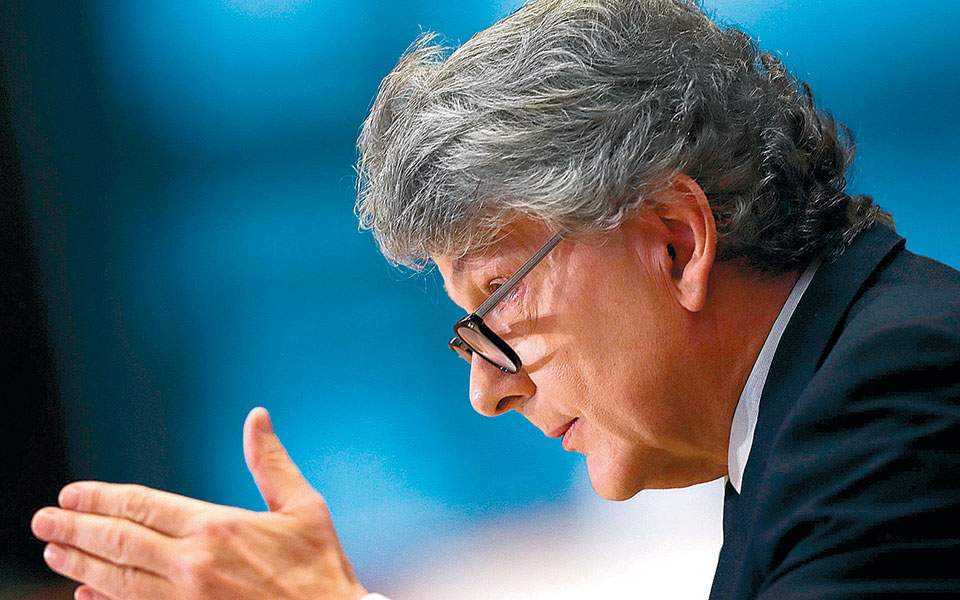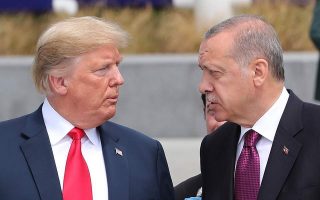EU seeks to rein in competition from foreign rivals

The European Union unveiled plans Wednesday to fight unfair competition from foreign companies backed by powerful non-EU trade rivals amid China's growing influence in the bloc's single market.
With its project, the EU's executive arm intends to tackle what it calls the "distortive effects" of foreign subsidies facilitating takeovers of European businesses by companies that receive large amounts of public aid from non-EU governments. Competing with European businesses that labor under strict state aid rules, these companies can take advantage of the unfair support to invest massively and win public procurement tenders.
"Everyone is welcome here," Thierry Breton, the European Commissioner for Internal Market, told a press conference. "But it's also true that when one comes to benefit from the internal market, to do business here, one has to respect our rules."
Amid the economic recession triggered by the coronavirus pandemic, the Commission's plan could help protect from hostile takeovers the thousands of European business that have been severely hit by the crisis.
"Europe's economy is open and closely interlinked to the rest of the world. If this is to remain a strength, we must stay vigilant," said EU Commission vice-president Margrethe Vestager, who is also in charge of competition policy. "That is why we need the right tools to ensure that foreign subsidies do not distort our market, just as we do with national subsidies."
The proposals came only days before a video EU-China summit next week. Although the commission did not explicitly target economic giants like the U.S. or China as it unveiled its plan, the EU last year branded the communist country a "systemic rival."
"We are happy that the European Commission is finally taking this issue seriously. But China will not be impressed by a discussion paper. What we urgently need is legislative proposals to prevent outsiders from buying our strategic companies and know-how at a bargain price," said EU lawmaker Manfred Weber, chairman of EU Commission President Ursula von der Leyen's center-right European People's Party.
China has become the EU's second-biggest trading partner behind the United States, while the EU is China's biggest trading partner. The pair trade on average over 1 billion euros ($1.1 billion) a day.
"The EU is amongst the most open economies in the world, attracting high levels of investment from our trading partners. However, our openness is increasingly being challenged through foreign trade practices, including subsidies that distort the level playing field for companies in the EU," said Phil Hogan, the commissioner for trade.
The Commission said its plan is open for public consultation until the end of September before legislative proposals can be considered by member states and the EU Parliament.
The proposals set out three programs aimed at combating the effects of foreign subsidies in the single market, in acquisitions of EU companies and during public procurement procedures.
The plan would see the creation of a general market scrutiny tool that would help identify situations in which foreign money can cause distortion, and allow a supervisory authority to take appropriate measures.
"However, it could also consider that the subsidized activity or investment has a positive impact, which outweighs the distortion and not pursue the investigation further," the Commission said.
The proposals also envisage that companies receiving support of a non-EU government should notify authorities when they buy EU businesses and that transactions could not be secured until their review by the Commission.
"Should the supervisory authority find that the acquisition is facilitated by the foreign subsidy and distorts the Single Market, it could either accept commitments by the notifying party that effectively remedy the distortion or, as a last resort, it could prohibit the acquisition," the Commission said.
As for public procurement procedures, the EU's executive arm proposes a mechanism where bidders would have to notify the contracting authority of financial contributions received from non-EU countries. If foreign money made the procurement unfair, the bidder would be ejected from the procedure.
[AP]





